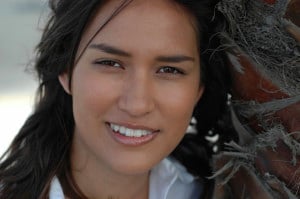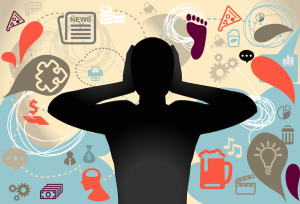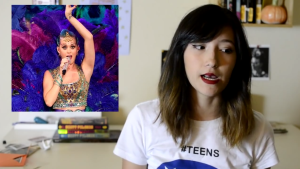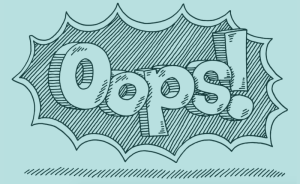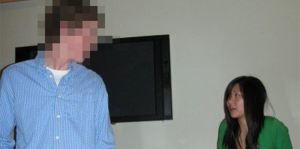
Source: Huffington Post
I don’t know.
I don’t know how my life is going to turn out, I don’t know if the guy I’m dating likes me back, I don’t know if I’m going to hit traffic on the way to catch a flight.
And “I don’t know” is a phrase that scares us because we think we’re always supposed to know.
When I was younger, I rarely spoke up when I didn’t know something. I nodded with others like I understood because I didn’t want to seem stupid, or I gave an acceptable, yet self-deprecating response.
And the more I nodded, the less I learned.
Then after years of chin-to-chest, I found myself in a situation where I could no longer pretend. I didn’t know why my best friend passed away so young. I didn’t know why my life suddenly seemed scripted. I didn’t know why I could no longer pretend that I knew what I wanted to do with my life, or be, or how I wanted to live.
All I knew was that I was no longer ashamed of what I didn’t know because everything was uncertain – everything.
I no longer felt any power in pretending.
Pretending was something that I did in acting class. But in life, when the mask came off, I was nowhere nearer to knowing than before.
So what did I do?
I stopped faking it. I started to accept what I didn’t know. And by doing so, what I found was that there was only one piece I could potentially know – and that was myself.
That was my power, I realized: to know my needs.
And if you, like me, have struggled with the uncertainty of life – and if you, like me, are interested in getting to know yourself better by learning what you want and what you need, I urge you to try some of the following techniques.
1. Cut the Noise
Think for a minute about how often you sit and do nothing. And I don’t mean “nothing” as in sitting in front of the television. I mean actually sitting by yourself, doing absolutely nothing.
Not too often, huh?
When I lived in Madrid, I remember how anxious I was at first because of how much time I had to walk around the city, sit in parks, and sip a café con leche.
I was anxious because I grew up believing that if I wasn’t doing something, then I wasn’t being productive.
And perhaps for work this may be true – although we also need to reconsider our notions that we must be constantly busy all of the time, even in the workplace – but for learning about who we are, what we need is more time by ourselves.
Try It: Take one day over the weekend and spend it alone. Wake up and ask yourself, “What do I want to do today?” And do it.
Maybe you want to read a book, or sit on a park bench you walk by every day to work, or maybe all you want to do is make yourself a good meal. Whatever your response is to your question, listen to it.
2. Wash Your Face
I used to hate washing my face.
I rolled my eyes at it because it felt like a chore, especially if I wasn’t in the mood for anything but sleep or I just wanted to get my day going.
But I also hated it because I had been washing my face since puberty thinking with each circular motion, my zits would magically disappear. My skin was always breaking out, so washing my face was a constant reminder that my complexion didn’t look like my friends’ flawless faces. Thus, it became something I dreaded doing.
But what I’ve now noticed is that washing my face is a way to take care of myself. Each day, I get the opportunity to pamper myself by taking time to wash my face and put on lotion.
This simple, simple act helps us tap into who we are because it awakens our desire to take care of needs.
And you don’t necessarily literally have to wash your face. Maybe there’s another self-care action that you’d like to take deliberately every day. Maybe it’s yoga before bed. Maybe it’s journaling. Maybe it’s taking a longer, more relaxing shower.
But whatever that small intention is, set it.
Try It: For one week, wash your face in the morning and at night before bed. Or create another ritual by thinking about what you’re doing while you’re doing it.
3. Daydream
When I was younger, I could sit for hours with my eyes closed imagining flowers that talked and being sucked through a portal into the past. I let myself dream, knowing that my only limit was that of my imagination.
As I got older, daydreaming was no longer encouraged and soon, my imagination was limited. I couldn’t think beyond what I saw in front of me.
If we don’t use our imaginations or let ourselves dream and see what we want our worlds to be like or who we want in them, how we want to be within them, then we lose touch with our wants and needs.
If we stop ourselves from dreaming, we stop ourselves from living.
So let’s get back to that place. Let’s make time and space in our lives for daydreaming. Because when our minds wander freely, they generally meander over to what it is that we want and need to be happier, more fulfilled people.
Try It: Before going to sleep at night, close your eyes and start to imagine what you want your world to look like. Where do you live? What are you doing? Who are you with? Think about your environment. What do you see?
Envisioning it is the first step toward making it happen.
4. Practice
I always thought that I was supposed to know who I was. But we aren’t born knowing who we are; we are born given the opportunity to get to know who we are.
And like with any opportunity, the best way to seize it and make it work for you is through practice.
We hear about how athletes train for 8-10 hours a day to win gold, or businessmen who fail hundreds of times before they get it just right, but rarely do we hear the stories of how people figured out who they were and what they needed or how they combatted the negative self-talk or insecurities to get to where they are today.
If we did see these stories though, what we’d see is that just like in athletics and business, practice is key.
Learning about who you are requires that you show up and listen to yourself, and that you take care of yourself and that you daydream about who you want to become, because becoming who you are is a daily commitment.
Try It: Think of the last activity you tried to master. Maybe it was violin, writing, sewing, running a 5K, or getting a promotion.
How much time did it take you?
To run a 5K, maybe you had to dedicate three hours a week to running? Could you dedicate three hours a week to getting to know yourself?
If you think you can, put it in your calendar. If you don’t, still write it down. Pencil it in if you need to, but try, even if it’s one hour a week, and you’ll soon start to notice a difference.
***
So many of us are trying to figure out what we want to do with our lives or what makes us happy, and the great part is that we have the ability to figure out both. But it’s not something that happens overnight.
There isn’t an instant fix to figuring out who you are and what you need, but the way to get there is by making small shifts you can start to put in practice now.
[do_widget id=”text-101″]
Want to discuss this further? Visit our online forum and start a post!
Cynthia Kane is a Contributing Writer for Everyday Feminism. Over the last year and a half, she’s relearned the following: how to jump up and down when she’s happy, cry when she’s sad, laugh when something’s funny, take a compliment, smile at strangers, and be open to the fact that everyone is going through it all the time. For more, visit her website or follow her on Twitter @cynkane. Read her articles here.
Search our 3000+ articles!
Read our articles about:
Our online racial justice training
Used by hundreds of universities, non-profits, and businesses.
Click to learn more
Most Read Articles
- « Previous
- 1
- …
- 30
- 31
- 32







